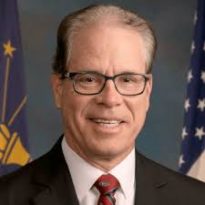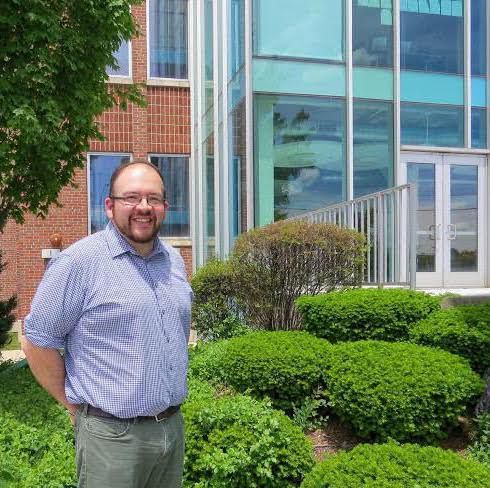https://www.vanderburghsheriff.com/jail-recent-booking-records.aspx
SENATOR BRAUN ON “MEET THE PRESS”


Senator Mike Braun, an Indiana Republican, says the fiscal impasse probably won’t be solved until the U.S. is “looking over the cliff of a crisis.” He speaks with Bloomberg’s David Westin on “Balance of Power.”Â

For Coronavirus Assistance, please visit braun.senate.gov/coroanvirus-assistance.
To subscribe to this newsletter and see other updates from Senator Braun, visit his official website.Â
To unsubscribe from Senator Braun’s Weekly Update, click below or contact press@braun.senate.gov.Â
The Squirrel Invasion of 1822
September 13 – September 19The Week in Indiana History |
|||||||||||||||
  “Before you can think outside of the box, you have to start with a box.” – – -Twyla Tharp (Born in Portland, Indiana, she is a dancer, choreographer, and author who now lives and works in New York City.) Did You Know?   The “Gas Boom” in Indiana lasted only about 15 years at the end of the 19th century, yet it had a huge effect on the state’s economy. Because of the cheap and seemingly endless supply of natural gas, hundreds of factories were established all over Central Indiana. Frank C. Ball and his four brothers decided to move their fruit jar company from Buffalo, New York, to Muncie. Other companies followed, and soon Muncie was the second-largest producer of glass in the country, second only to Pittsburgh. The Hoosier “Gas Belt” included other cities like Anderson, Kokomo, and Marion. Greentown, in Howard County, became famous for beautiful art glass, highly prized today by collectors. In 1901, something happened which few expected: the gas ran out. Most of the glass producers closed down, but they left a manufacturing base ready and waiting for entrepreneurs in other fields. The foundation of industry and labor were in place when automobile builders turned their attention to the Hoosier State in the early years of the 20th Century. ANSWERS: 1. b  2. a  3. c
|
|||||||||||||||
Republican County Commissioner Cheryl Musgrave Endorses Ben Shoulders For Re-Election
In an unprecedented move, Republican Vanderburgh County Commissioner Musgrave asks her supporters to vote for Democrat Ben Shoulders for re-election.
Commissioner Musgrave stated that “Ben and I were both elected in 2016 and have worked in harmony since day one”
Mr. Shoulders said, “that he and Chery have been the pro-development Commissioners from day one.” Â “We have both practiced “Good Public Policy” Â and supported needed capital projects within our budget restraints.”
Commissioner Shoulders stated that he “looks forward to serving with Cheryl for the next four years and ask for your vote on November 3rd so we can continue moving our county forward.”
I would like to thank County Commissioner Cheryl Musgrave for her endorsements.

Teachers: It’s Time To Talk About Our Secondary Trauma
Teachers: It’s Time To Talk About Our Secondary Trauma
Educators need mental health supports. Here’s how Chicago schools could make a difference.
Being in a silent school hallway is not unlike finding yourself within a horror movie.
The hallway should be full of boisterous conversation, laughter, and the bustle of our school community. But when I returned to my Chicago high school in late spring to clean up my classroom, the absence of students, and the knowledge that those hallways had sat empty for months, was unnerving. When I shared that sentiment with colleagues, one fellow teacher broke down in tears.
:no_upscale()/cdn.vox-cdn.com/uploads/chorus_asset/file/21867440/meeker.jpg)
The struggles of remote learning — notably, the inequitable distribution of technology, and low student participation for a multitude of reasons — only added to our uncertainty. We’ve been left to wonder about our students: Are they healthy? Are they safe? In normal times, a conversation in the hallway or a quick classroom check-in would bring me up to speed. During remote learning, the lack of in-person interaction often turned the social and emotional aspects of education into guesswork.
I also know that, for some students, the only advocates in their lives besides their parents are their teachers. As the pandemic disproportionately ravages America’s poorest communities, and the systemic racism in our society is laid painfully bare, I’ve seen my students struggling to grapple with the stress. In these moments, I am not only their teacher but their counselor and confidant.
It’s a lot. And as much as I am honored by my students’ trust, responding to student trauma on top of our own daily stressors can produce a kind of secondary trauma in teachers. For this upcoming school year to be successful, schools are going to need to acknowledge that and help teachers work through it in ways they never have before.
I have known educators in the past who have suffered quietly as they faced their own mental health challenges, costing their students a vibrant and caring atmosphere. We cannot allow this kind of silent suffering to continue. If we are unable to fully take care of our own mental health, how can we possibly be the advocates our students need?
I see a few ways Chicago Public Schools could make a real difference here. One way is to use the $18 million saved from shrinking its contract with the Chicago Police Department to increase the number of social workers, boost support for social-emotional learning, and add mental health services for students and teachers.
Another option would be to expand the school district’s Office of Social and Emotional Learning to include, explicitly, the responsibility for teachers’ social and emotional health. While it currently helps educators create effective curriculum materials, teacher mental health remains separate. In addition, the Employee Assistance Program, which offers in-person and virtual counseling, loans, and financial planning for the district’s workforce, could grow to include resources geared explicitly toward anti-racism, conflict de-escalation, and restorative justice.
When we all do finally return to our classrooms, educators — with the support of their school leaders — must move from trauma-informed to healing-centered education. Trauma-informed education implies a deficit and runs the risk of reducing a person to their traumatic experiences. Healing-centered education focuses on the assets we all bring to the classroom and any post-traumatic growth that has taken place. For example, if a struggling student has an outburst, healing-centered education means acknowledging past trauma as a cause, but also the work that student has since done and the unique perspective they offer.
Over time, I hope our school communities will heal, not go back to the way they were but grow into new and better forms. Trauma forces change. It is up to all of us, students, teachers, and administrators, to plant the seeds for a more caring, equitable, and supportive education system, one that takes seriously the mental health of students and educators alike.
FOOTNOTE: Bryan Meeker is an instructor at Acero’s Major Hector P. Garcia High School, where he teaches biology. He is a member of the Chicago Teachers Union, Mikva Challenge, Educators for Excellence, and the Acero Anti-Racism Committee.
ADOPT A PET
Bella is a female Beagle mix. She’s approximately 10 years old. She plays nicely with other dogs! She was abandoned by her previous family. Her adoption fee is $130 and includes her spay, microchip, vaccines, and more. Get details on adoption at www.vhslifesaver.org/adopt!
HOT JOBS IN EVANSVILLE
|
|||||||||||||||||||||||||||||||||||||||||||||||||||||||||||||||||||||||||||||||
|












 1886   Natural gas was discovered in a well near Eaton, Indiana. From a depth of 992 feet, a huge flame shot into the night sky, visible in Muncie, ten miles away. Further exploration found the largest known gas field in the world, encompassing 17 Indiana counties. The discovery ignited the historic Indiana “gas boom” which would have a profound effect on the state’s economy.
1886   Natural gas was discovered in a well near Eaton, Indiana. From a depth of 992 feet, a huge flame shot into the night sky, visible in Muncie, ten miles away. Further exploration found the largest known gas field in the world, encompassing 17 Indiana counties. The discovery ignited the historic Indiana “gas boom” which would have a profound effect on the state’s economy.


 2003   A memorial service was held at the Indiana Statehouse for Governor Frank O’Bannon, who had died five days earlier as the result of a stroke. O’Bannon, the state’s 47th Governor, was praised by all as a kind and thoughtful friend. United States Senator and former Governor Evan Bayh, with whom O’Bannon had served as Lieutenant Governor, described him as “a good man, a decent man, a statesman.” Among those paying their respects were four former Indiana governors, a dozen Congressmen, nine governors or former governors from other states, and many members of the state General Assembly. Hundreds of school children were there, invited by First Lady Judy O’Bannon. Pictured: The official portrait of Indiana Governor Frank O’Bannon by Indiana artist Michael Allan Chelich. Â
2003   A memorial service was held at the Indiana Statehouse for Governor Frank O’Bannon, who had died five days earlier as the result of a stroke. O’Bannon, the state’s 47th Governor, was praised by all as a kind and thoughtful friend. United States Senator and former Governor Evan Bayh, with whom O’Bannon had served as Lieutenant Governor, described him as “a good man, a decent man, a statesman.” Among those paying their respects were four former Indiana governors, a dozen Congressmen, nine governors or former governors from other states, and many members of the state General Assembly. Hundreds of school children were there, invited by First Lady Judy O’Bannon. Pictured: The official portrait of Indiana Governor Frank O’Bannon by Indiana artist Michael Allan Chelich.  










